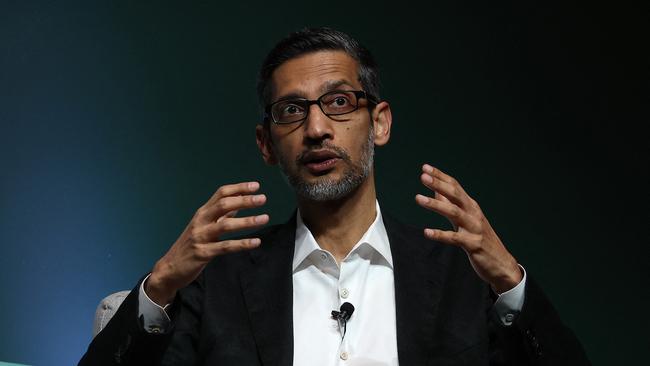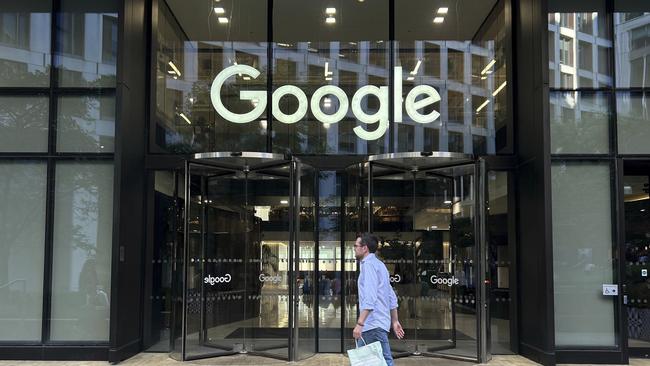Apple issues warning to iPhone users to delete this commonly used app immediately
Apple has issued a rare warning to iPhone users to delete this commonplace app immediately over privacy concerns. See which app.
World
Don't miss out on the headlines from World. Followed categories will be added to My News.
Apple is warning its iPhone users to delete a common app, claiming it’s a danger to digital privacy.
Without mentioning the company by name, Apple issued a video warning for users to stop using Google Chrome.
In a video titled “Privacy on iPhone | Flock,” Apple parodies Alfred Hitchcock’s classic 1963 horror film The Birds to demonstrate how browser information isn’t really hidden from trackers.
“Flock” is likely a pun on Google’s initial tracking cookie replacement plan called FLoC (Federated Learning of Cohorts), which “is a new way for advertisers and sites to show relevant ads without tracking individuals across the web,” the New York Post reports.
In the video, iPhone users are being followed by surveillance cameras when browsing the internet, but the cameras finally explode and leave the user alone when they decide to use Safari as their browser instead.
The video from Apple is gaining traction after Google announced that it won’t remove third-party cookies in Chrome after promising to do so.

The controversy has led Apple to promote its browser, Safari, as a “browser that’s actually private.”
Chrome allows websites and advertisers to track users’ activity in order to serve personalised ads, which also brings in a multibillion-dollar revenue stream for Google.
Google initially planned to get rid of third-party cookies and develop a new way to issue targeted ads while still preserving user privacy, but the plan fell apart and the company has chosen to “maintain our current approach to offering users third-party cookie choice in Chrome.”
Tracking cookies aren’t inherently bad themselves, but they can open the door to privacy risks and sometime increase the likelihood of your data and sensitive information being leaked or stolen — meaning if you have an iPhone and use Chrome, you likely will continue to be tracked unless you use Incognito Mode or clear cookies manually.

Apple’s argument that Safari is safer has been backed up by experts, too.
“When it comes down to your security, Safari is probably your best bet,” Elly Hancock from Private internet Access said in a blog post.
“Safari is more secure and privacy-friendly than Chrome, but Chrome is faster and offers enhanced performance.”
GOOGLE TO FIGHT ‘ILLEGAL MONOPOLY’ FINDING
It comes as Google could be forced to break up its empire after a United States court found the tech giant was operating illegal monopolies over the digital advertising market.
In a historic ruling that could reshape the online ad landscape, Judge Leonie Brinkema found Google had harmed its publishing customers, competition, and individual internet users.
The case, brought by the Federal Government and 17 states, alleged the US$2.8 trillion company had wilfully acquired and maintained monopoly power in the open-web display publisher ad server and exchange markets which connects buyers and sellers.
It also alleged Google unlawfully tied its server and exchange businesses, effectively forcing customers to use both services, in violation of the Sherman Act which prohibits anti-competitive business activity.

Judge Brinkema dismissed a third complaint alleging Google also monopolised another area of the ad market, but ruled against Google on the other claims.
“For over a decade, Google has tied its publisher ad server and ad exchange together through contractual policies and technological integration, which enabled the company to establish and protect its monopoly power in these two markets,” Judge Brinkema wrote in her judgment.
“Google further entrenched its monopoly power by imposing anti-competitive policies on its customers and eliminating desirable product features.
“In addition to depriving rivals of the ability to compete, this exclusionary conduct substantially harmed Google’s publisher customers, the competitive process, and, ultimately, consumers of information on the open web.”
In a statement after the ruling, a Google spokesperson said the company would appeal the decision, saying “we won half of this case and we will appeal the other half”.
“We disagree with the Court’s decision regarding our publisher tools,” Google Vice President Lee-Anne Mulholland said.
“Publishers have many options and they choose Google because our ad tech tools are simple, affordable and effective.”

Media companies, including from this masthead’s publisher News Corp, gave evidence during the three-week trial last year in which a former employee said the company considered ditching Google’s advertising products as early as 2017 but found it would have cost US$9 million in lost revenue.
Further hearings will be held to determine an appropriate penalty, which could include a forced sale of parts of the business.
It marks the tech giant’s second major antitrust loss after another US court last year ruled Google had abused its dominance of the US search market.
A hearing is scheduled to begin next week examining remedies in that case, including a submission by the Justice Department to break the company up.
Google is facing a similar court action in the UK.
More Coverage
Originally published as Apple issues warning to iPhone users to delete this commonly used app immediately


